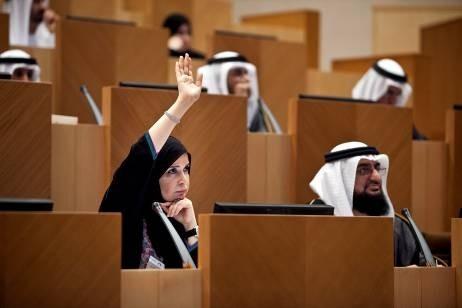
Le résultat des sénatoriales à la Réunion offre un équilibre presque parfait. Sur les quatre sièges à pourvoir, deux vont la droite et deux à la gauche, mais personne au centre.
Democracy and the equal participation of men and women in the political arena are closely intertwined. No parliament or any decision-making body can claim to be representative without the participation of both men and women. As stated in the Universal Declaration on Democracy adopted by the Inter-Parliamentary Union’s Member Parliaments in 1997, "The achievement of democracy presupposes a genuine partnership between men and women in the conduct of the affairs of society in which they work in equality and complementarity, drawing mutual enrichment from their differences."
Recent years have seen a steady increase in the number of women in parliament, though the world average of less than 22 percent remains far from the goal of parity between women and men. The election of women to the highest positions of state and government in several countries has also contributed to the changing face of politics.
While the road to election is a difficult one, the challenges for women do not stop there. Once women enter parliament or other bodies, they are faced with many new challenges. Parliament is traditionally a male-oriented domain where the rules and practices have been written by men. It is, therefore, an ongoing challenge to transform parliament into a gender-sensitive environment, to ensure that actions are gender-sensitive and to guarantee that gender is mainstreamed throughout the legislature.


Le résultat des sénatoriales à la Réunion offre un équilibre presque parfait. Sur les quatre sièges à pourvoir, deux vont la droite et deux à la gauche, mais personne au centre.

Le Vietnam est déterminé à consolider et à renforcer les relations entre les deux pays, a affirmé Vuong Dinh Huê, ajoutant que le Parti communiste du Vietnam (PCV) souhaitait coopérer étroitement avec le

Comment a-t-on pu imaginer un jour que la démocratie pouvait se construire sans les femmes ?

Plus de cinquante femmes politiques dont des candidates aux élections législatives participent depuis mardi 12 septembre, à Bunia, à un séminaire de renforcement de capacités sur le pouvoir décisionnel d

Cinq femmes vont faire partie du nouveau gouvernement, contre deux précédemment, sur 19 ministres.
Début septembre, en l’espace de quelques heures, le pays d’Amérique latine, où plus de dix féminicides ont lieu chaque jour, a connu deux évolutions majeures : la dépénalisation de l’avortement dans l’en
Début septembre, en l’espace de quelques heures, le pays d’Amérique latine, où plus de dix féminicides ont lieu chaque jour, a connu deux évolutions majeures : la dépénalisation de l’avortement dans l’en
Au vu de cette candidature, on peut présumer que le prochain président du Mexique sera une femme, une première depuis l’indépendance du pa
Au vu de cette candidature, on peut présumer que le prochain président du Mexique sera une femme, une première depuis l’indépendance du pa
Normal
0
false
-->
Normal
0
false
-->